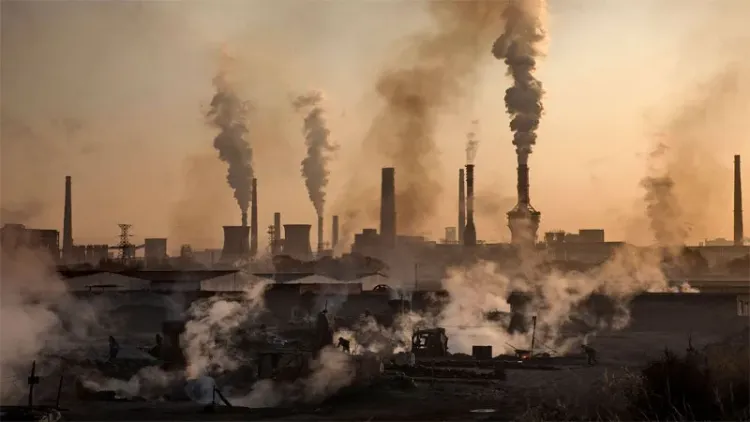Action Window Tightens as 2024 Sets Record for Global Temperatures: Insights from Climate Expert

Bonn, Jan 10 (NationPress) The opportunity to address the intensifying climate crisis is diminishing, and immediate, impactful worldwide action is crucial to lessen its most severe outcomes, cautioned Julien Nicolas, a prominent climate researcher at the Copernicus Climate Change Service (C3S).
“We must recognize the implications and persist in our efforts to reduce global greenhouse gas emissions as swiftly as possible,” he stated. “Every fraction of a degree is significant. Each incremental rise in temperature results in increasingly severe and widespread repercussions.”
The EU-funded C3S announced on Friday that 2024 has been recorded as the hottest year globally since records began in 1850.
Nicolas attributed this unprecedented warmth to a mix of human-induced greenhouse gas emissions and natural climate fluctuations, including a notable El Niño event. Nonetheless, he emphasized that “the long-term warming trend is predominantly fueled by human actions.”
According to the European climate organization, 2024 also signifies the first year in which the average global temperature has surpassed 1.5 degrees Celsius above pre-industrial levels—a critical threshold established in the Paris Agreement. This accord seeks to restrict global warming to significantly below 2 degrees Celsius above pre-industrial levels, with a goal of capping it at 1.5 degrees by the century's end.
“While the Paris Agreement discusses long-term averages, surpassing this limit in a single year is a concerning milestone,” Nicolas noted, adding that it indicates humanity is perilously close to sustained warming levels that will lead to more devastating climate impacts.
Throughout 2024, extreme climate phenomena were observed globally, with Europe emerging as one of the most affected areas.
“Due to its high population density and the fact that it is warming more rapidly than many other regions, Europe faces a variety of climate changes that heighten its vulnerability to climate impacts,” Nicolas explained in an exclusive conversation with Xinhua news agency.
Heatwaves, a defining feature of a warming planet, have become increasingly common and intense. “Heat stress not only jeopardizes lives but also disrupts food supply chains and harms ecosystems,” Nicolas highlighted.
He pointed out the devastating flooding in Valencia, Spain, noting that “in certain areas, more than a year’s worth of rain fell within just a few hours,” overwhelming even the most robust infrastructure.
“The flooding in Valencia illustrates the susceptibility of urban areas, particularly in arid Mediterranean climates, to extreme rainfall. It is imperative to adapt our cities and agricultural systems to manage these occurrences,” he stated.
The scientist urged for expedited actions to establish early warning systems, upgrade infrastructure, and enhance resilience in urban and agricultural frameworks.
Looking towards the future, Nicolas mentioned that global temperatures in 2025 may not exceed those of 2024 due to the waning influence of El Niño. However, he cautioned that extreme climate events will continue, as greenhouse gas emissions remain at unprecedented levels, and the long-term warming trajectory remains unchanged.
Emphasizing humanity's contribution to the increasing frequency and severity of climatic extremes, he asserted that heatwaves and extreme rainfall events are likely to occur across all continental regions. “The climate is warming rapidly, and the window for action is closing,” Nicolas stressed. “The time to act is now.”









